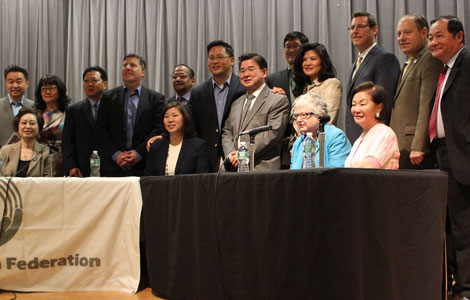Brazil subway strike on in WCup city despite fine
Updated: 2014-06-09 18:04
(Agencies)
|
||||||||
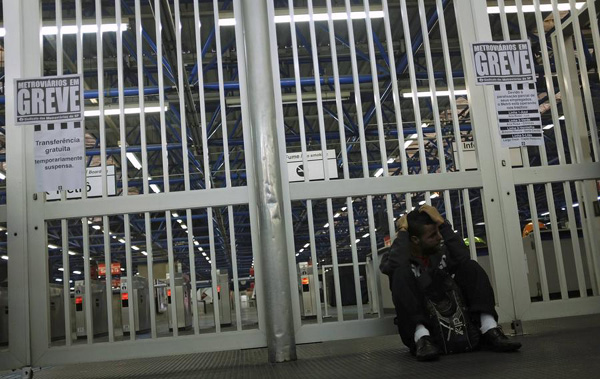 |
|
A commuter sits in front of a closed metro Barra Funda station during a strike by metro subway workers in Sao Paulo, June 5, 2014. Union workers of Sao Paulo's Metro subway system are on strike since midnight, with just a week to go before the 2014 World Cup opens in Brazil, local media reported. The notice, top R, reads "Workers of metro in strike". [Photo/Agencies] |
SAO PAULO - A labor court slapped fines on the subway workers union Sunday for a strike that has closed many stations and clogged the avenues of Brazil's largest city just days before it hosts the World Cup opening match.
Angered by the ruling, union representatives said the strike would continue Monday, and its leader warned that the strikers would try to shut down the subway line serving the stadium hosting the tournament's first game Thursday.
Union officials also said other groups promised to join strikers early Monday for a big demonstration at a metro station.
"The government is declaring a war against its workers," said Alex Fernandes, the union's general secretary. "They sit down to talk to us or there won't be subway service during the World Cup."
Subway workers were angry that the eight-judge panel threatened even higher penalties if they didn't return to their jobs. The court fined the union $175,000 for the first four days of the strike and said it would add on $220,000 for each additional day the work stoppage continued.
Authorities have been able to provide limited subway service, but the strike has resulted in traffic chaos clogging key streets and has closed the main subway stations in Sao Paulo. If the walkout continued Thursday, it would be difficult if not impossible for many fans to get to Itaquerao stadium for the opening match featuring Brazil and Croatia. The stadium is about 12 miles (20 kilometers) east of the city center.
Sunday was the fourth day of the strike, and it closed more than 30 subway stops. World Cup visitors arriving in the city have run into more traffic jams than usual in a city already used to heavy congestion.
"There was no minimum care for the population, causing great disturbance, even in terms of public safety," said judge Rafael Pugliese, who was on the panel that imposed the fine.
The Regional Labor Court in Sao Paulo also agreed with management's offer of an 8.7 percent wage increase for subway workers.
The strikers are demanding an increase of more than 12 percent, but the Sao Paulo state-owned company that runs the system says that isn't possible because fares haven't gone up the past two years.
Union leader Fernandes said it won't pay the fines and will appeal the judges' ruling.
The court met over the weekend because of concerns about the strike's effect on the World Cup, which Brazil's leaders had hoped would be a chance for Latin America's biggest and richest country to shine on the international stage.
Police officers, teachers and public transportation workers have staged strikes in the weeks leading up to soccer's premier event. These have overshadowed protests over the cost of putting on the World Cup, which had been feared for possible disruptions following last year's huge anti-government demonstrations during the Confederations Cup soccer tournament.
- Brazilians protest World Cup spending, call for better services
- Cup theme fails to strike right chord with fans in Brazil
- Brazilian police officers stage 24-hour strike ahead of World Cup
- Strike hits Brazilian diplomatic missions in US, Europe
- Workers end strike after protest near World Cup stadium
- Brazilians protest World Cup spending, call for better services
- Brazilians protest World Cup spending
- Riot police train for World Cup protest

 Peking Opera charms New York City
Peking Opera charms New York City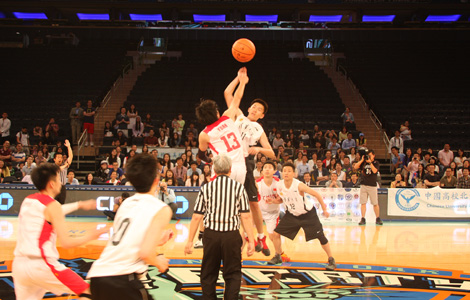
 CUAA hosts basketball tournament in NYC
CUAA hosts basketball tournament in NYC
 Brazil ready to help China score
Brazil ready to help China score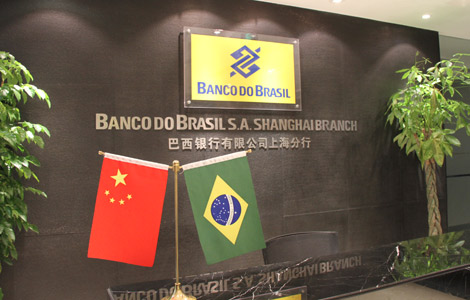
 Banco do Brasil opens branch in Shanghai
Banco do Brasil opens branch in Shanghai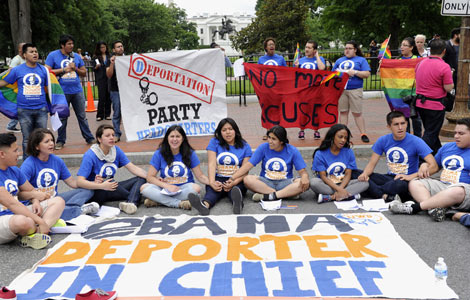
 White house sit-in against immigrant deportation
White house sit-in against immigrant deportation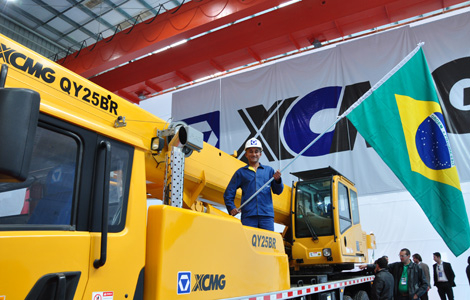
 XCMG's new factory to create over 1,500 jobs
XCMG's new factory to create over 1,500 jobs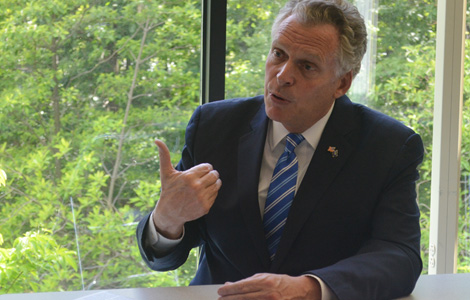
 Virginia's governor bids to expand China business ties
Virginia's governor bids to expand China business ties
 Portuguese language training helps Chinese in Brazil
Portuguese language training helps Chinese in Brazil
Most Viewed
Editor's Picks
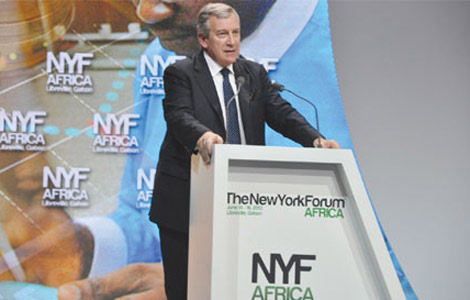
|

|

|

|

|

|
Today's Top News
Chinese navy to join 2014 RIMPAC naval drill
5 dead in Las Vegas shooting
Bergdahl says he was tortured
China's exports rebound in May
'Blue guards' shore up ocean conservation
Top court to enhance transparency
Chinese woo Buffet's lunch auction
US opens patent probe into toner cartridges
US Weekly

|

|

